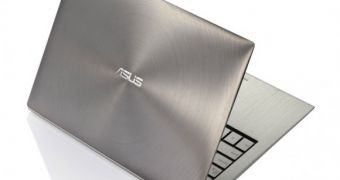Though most people expect, and hope, ultrabooks will start to take back the market share that tablets have gained, ASUS is of a visibly different opinion.
So far, the sentiment in regards to the relationship between ultrabooks and tablets has received quite a bit of news coverage.
Even without the likelihood of them getting any cheaper, Ultrabooks are seen, by notebook makers, as the way to win back the market share they lost to slates.
Of course, there are those that don't exactly have the same opinion, like AMD, who doesn't have very high hopes overall.
ASUS is now turning out to possess an opinion that, one might say, is the closest thing to a middle ground as there can be.
Basically, ASUS says that the ultrabook and tablet markets won't actually cross.
More specifically, they will be parallel IT segments, especially once the next generation of tablets appears.
Considering the pricing schemes of both sides, and how Ultrabooks seem to have specs similar to those of the Apple MacBook Air, all this could very well be accurate.
Though they have real benefits, ultrabooks still have the problem of high prices (the Acer Aspire S3, for instance, is at €799, or about $1,090).
With Amazon's super-cheap Kindle Fire out now, slates will probably begin their descent to price marks well below the $499 point.
ASUS also argued, the report claims, that the specs of the upcoming Eee Pad Transformer 2 will further distance the segment from that of ultrabooks (quad-core ARM CPU, Android 4.0 Ice Cream Sandwich, etc.).
All in all, ASUS expects, and hopes, that it will have no trouble selling, in high numbers, both its tablets and its ultrabooks, though, in the end, only time (and whether or not Intel cuts ultrabook CPU prices) will tell if its vision becomes reality.

 14 DAY TRIAL //
14 DAY TRIAL //